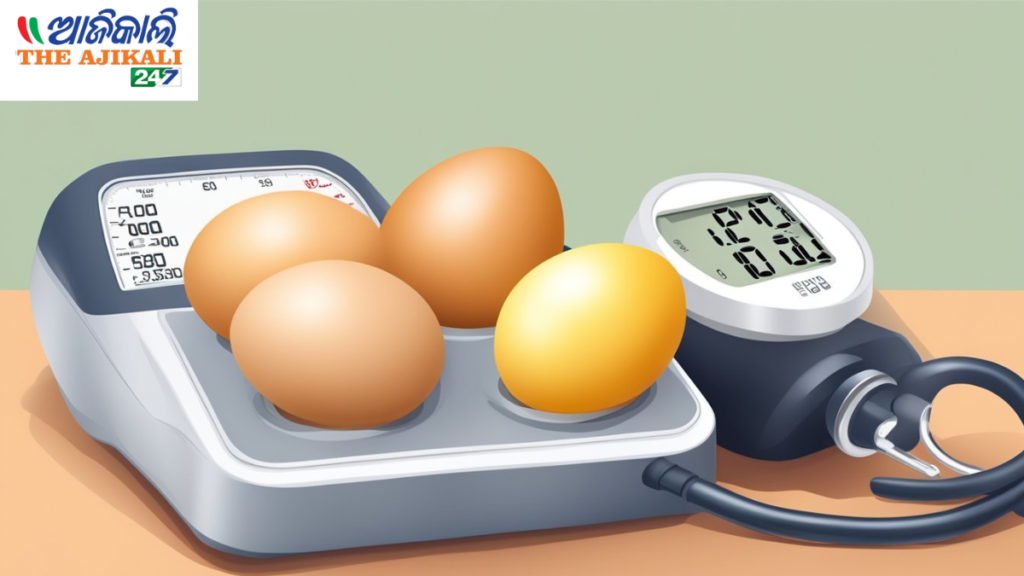Introduction:
In recent years, there has been much debate surrounding the consumption of eggs, particularly for individuals managing conditions like high blood pressure (BP), elevated blood sugar levels, and high cholesterol. Let’s delve into the facts and dispel any misconceptions regarding whether people with these conditions can safely include eggs in their diet.
Understanding the Nutritional Value of Eggs:

Eggs are widely recognized for their high nutritional content. They are an excellent source of:
- Protein: Eggs are considered a complete protein source, providing all nine essential amino acids crucial for various bodily functions.
- Vitamins and Minerals: They contain vitamins such as B12, riboflavin, and folate, along with essential minerals like iron and zinc.
- Healthy Fats: Eggs are rich in omega-3 fatty acids, particularly if they are from pasture-raised or enriched with omega-3.
- Choline: A nutrient important for brain health and metabolism.
Eggs and High Blood Pressure (BP):

For individuals with high BP, it’s crucial to manage sodium intake. Eggs, when prepared without added salt, are naturally low in sodium. They do not significantly affect blood pressure unless they are excessively salted during cooking.
Eggs and Blood Sugar Levels:

Concerns about eggs raising blood sugar levels primarily stem from their cholesterol content rather than their carbohydrate content. Eggs themselves have a negligible effect on blood sugar levels, making them generally safe for people with diabetes or prediabetes when consumed in moderation.
Eggs and Cholesterol:

Each egg yolk contains about 186 mg of cholesterol, which has led to concerns about their impact on cholesterol levels in the blood. However, research indicates that for most people, dietary cholesterol from eggs has a modest effect on blood cholesterol levels. The body compensates by producing less cholesterol when dietary intake increases. Current guidelines suggest that for healthy individuals, moderate egg consumption (up to one egg per day) is unlikely to significantly affect heart health.
Guidelines for Consumption:

- Moderation: As with any food, moderation is key. For individuals with health conditions such as high BP, diabetes, or high cholesterol, it’s essential to monitor overall dietary patterns rather than focusing solely on one food item.
- Preparation Matters: Avoid excessive salt and unhealthy fats when cooking eggs. Opt for healthier cooking methods such as boiling, poaching, or scrambling with minimal oil.
- Consider the Whole Diet: Eggs can be part of a balanced diet rich in fruits, vegetables, whole grains, and lean proteins. Eating a variety of foods ensures you receive a wide range of nutrients.
Conclusion:
In conclusion, eggs are a nutrient-dense food that can be part of a healthy diet for most people, including those managing conditions like high BP, diabetes, and high cholesterol. When consumed in moderation and prepared healthily, eggs provide essential nutrients without significantly impacting these conditions. As always, consulting with a healthcare professional or registered dietitian can provide personalized advice tailored to individual health needs.









